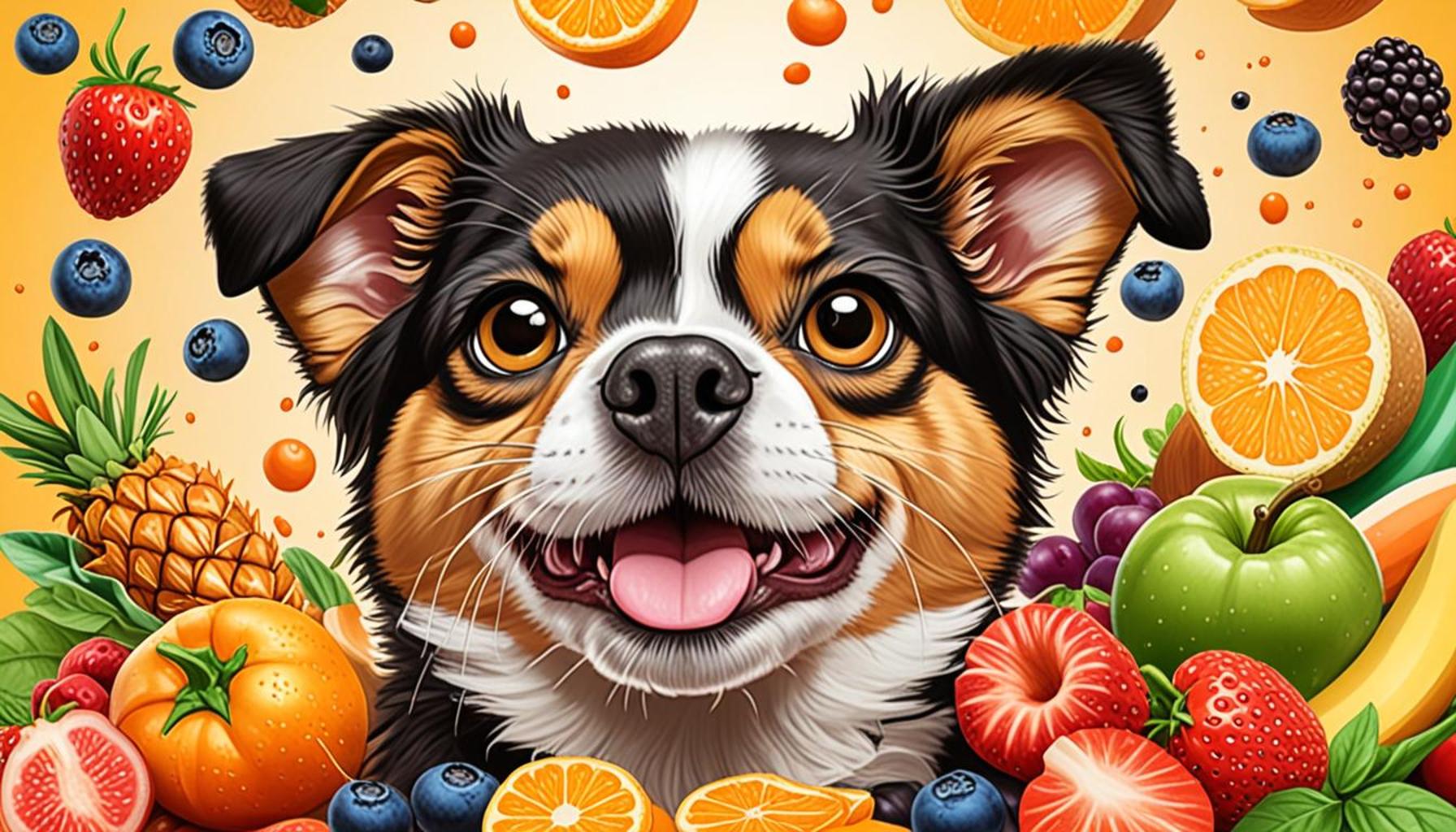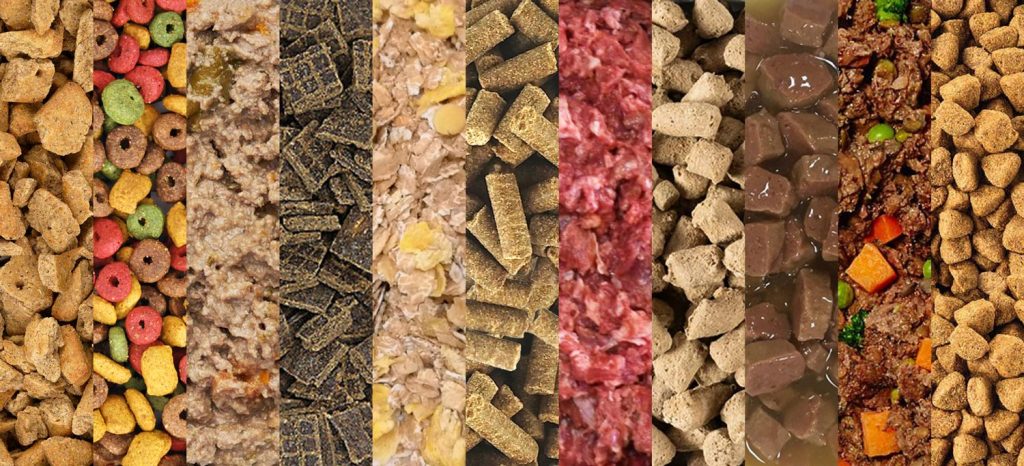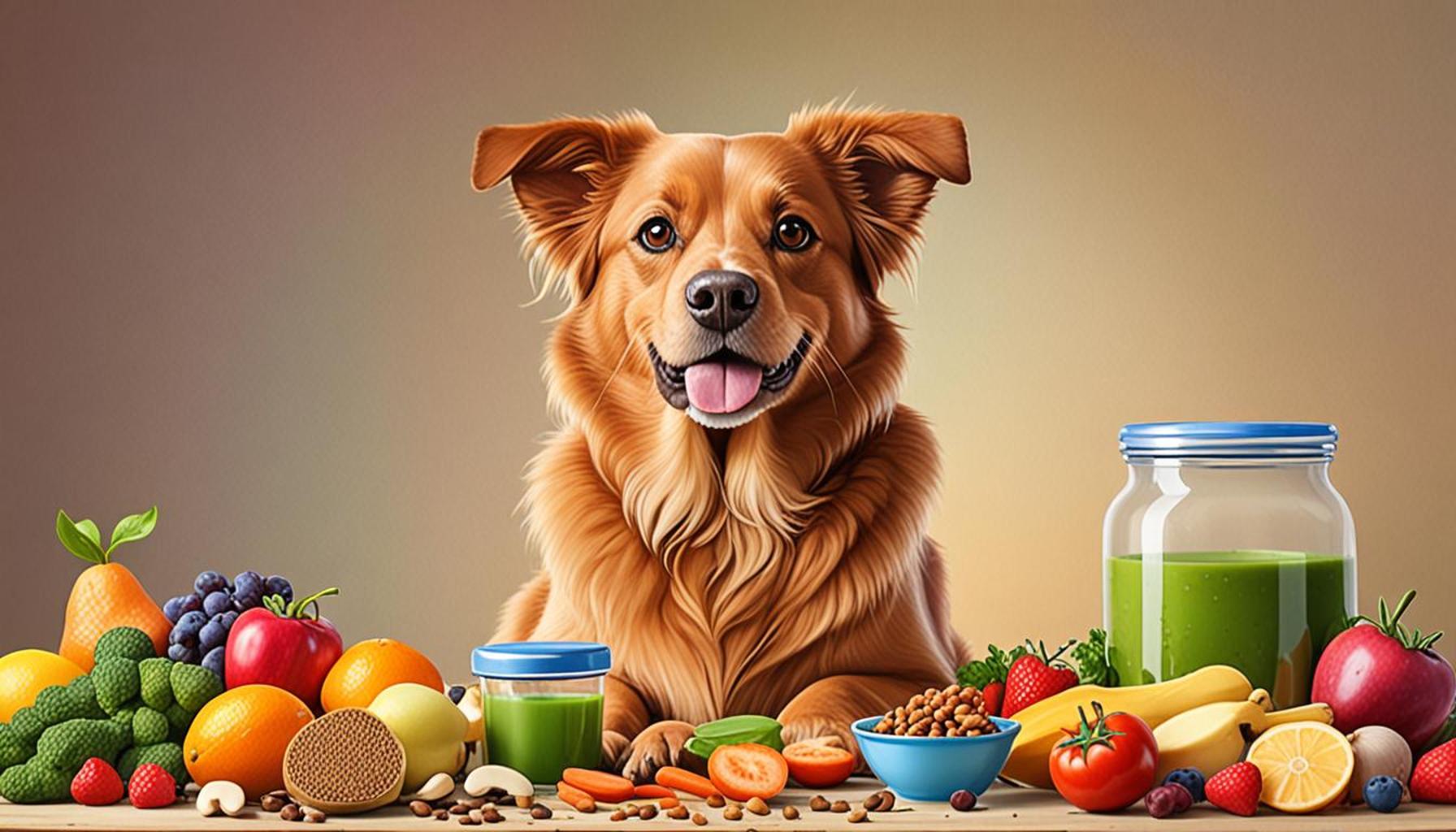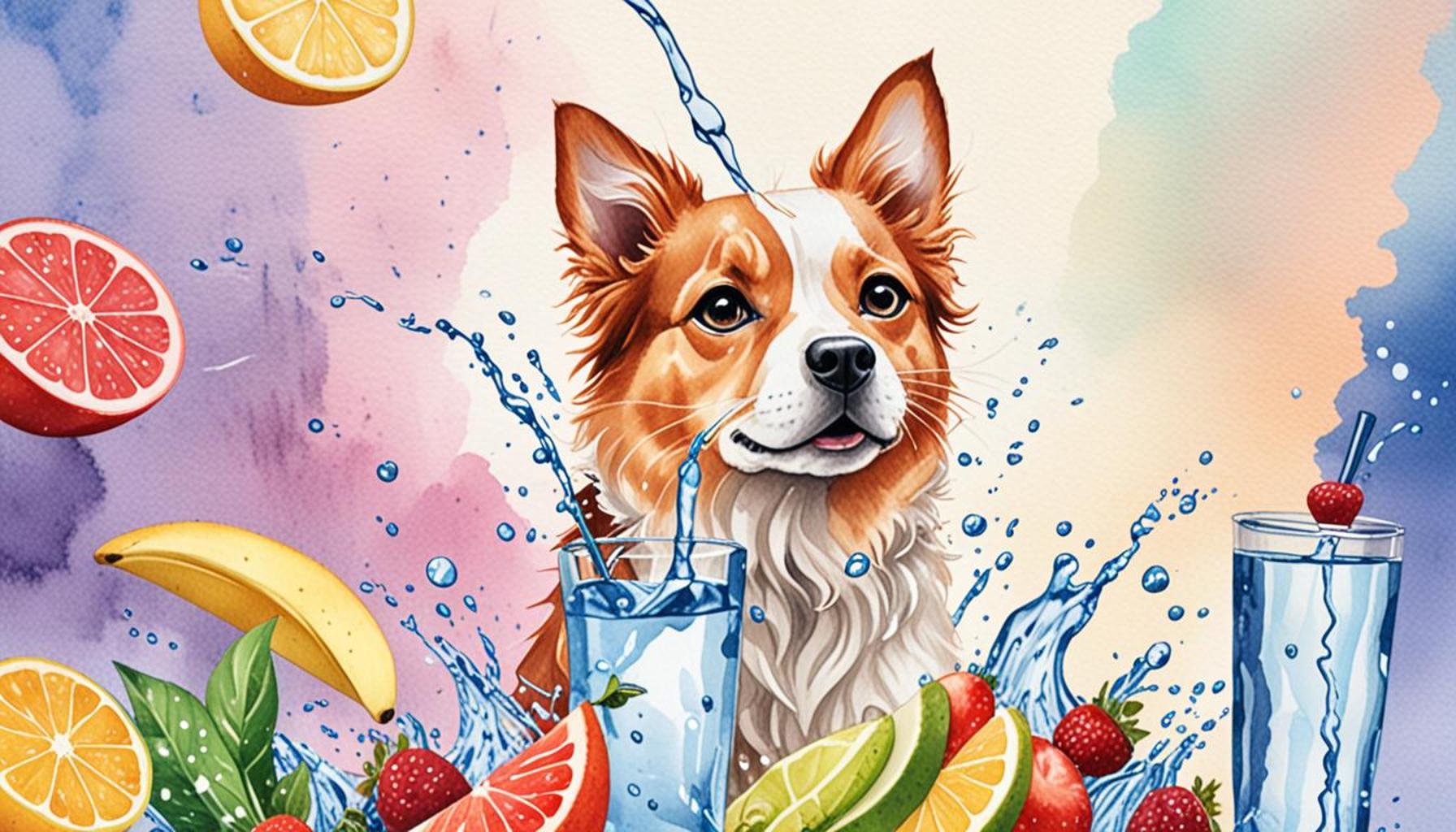Natural Foods vs. Commercial Kibble: What is Best for Your Pet?

Understanding Pet Nutrition Choices
The discussion surrounding pet nutrition is more relevant than ever, particularly as pet ownership continues to soar across the United States. Dog and cat owners increasingly regard their pets as family members, with many prioritizing health and wellness just as much as they do for themselves. This is paving the way for a pivotal choice between natural foods and commercial kibble.
The decision-making process regarding your pet’s diet involves a careful examination of several key factors that can impact their well-being:
- Ingredients: When evaluating pet food, the ingredient list serves as the foundation for understanding nutritional value. Natural foods often consist of whole, recognizable ingredients such as high-quality meats, fresh vegetables, and grains. For instance, you might find chicken, sweet potatoes, and carrots in a natural pet food, while commercial kibble could contain grain by-products, artificial flavors, and preservatives that can impact your pet’s health over time.
- Nutrition: A homemade or natural diet allows you to tailor every meal to your pet’s unique needs, catering to specific requirements, whether it be for weight management or skin sensitivities. Conversely, commercial diets are formulated to meet nutritional standards set by organizations such as the Association of American Feed Control Officials (AAFCO). This means that although kibble can provide a balanced diet, it may not satisfy all individual health needs.
- Convenience: When it comes to practicality, commercial kibble shines. It offers easy storage, long shelf life, and straightforward portion control, making feeding your pet a quick task. On the other hand, natural foods might demand dedicated time for meal prep and cooking. Some pet owners find joy in creating meals for their pets, akin to preparing family dinners, while others may struggle to find the time.
Each of these options carries its share of advocates and follows a growing trend toward transparency in pet nutrition. Research suggests that natural diets may correlate with fewer health issues in pets, such as allergies or obesity, while enthusiasts of commercial kibble argue it’s a convenient, cost-effective solution that ensures dietary balance if chosen properly.
As you explore these options, consider various factors that can affect your pet’s lifestyle—age, breed, activity level, and even preferences. Some pets thrive on a specific diet while others may be more adaptable. The journey to discovering the best diet for your furry friend can be enlightening and fulfilling, revealing the interconnectedness of nutrition, health, and happiness. Thoroughly researching and investigating your options will ultimately lead not just to a healthier pet, but to a richer bond with your beloved companion.
DISCOVER MORE: Click here to learn about the benefits of animal-assisted therapy

The Pros and Cons of Natural Foods
Choosing natural foods for your pet can lead to numerous benefits, particularly when it comes to their overall health and longevity. Proponents of natural diets highlight various aspects that make them appealing:
- Freshness: Natural foods are typically made from fresh, whole ingredients without preservatives. This means pets consume food that is closer to what they would naturally eat in the wild. Fresh meats, vegetables, and fruits can enhance their immune systems and promote vibrant coats.
- Customization: With natural diets, pet owners can tailor meals specifically to their pet’s dietary needs. For instance, a dog with a grain allergy may thrive on a meat and vegetable-based diet, eliminating ingredients that trigger allergic reactions. The ability to customize allows pet owners to be attentive to their pets’ sensitivities and preferences.
- Better Digestion: Many pets may digest natural foods more easily compared to processed kibble. Ingredients found in natural diets are often less modified and can provide better nutrient absorption, leading to fewer digestive issues.
However, transitioning to a natural food diet comes with its own set of challenges:
- Time Commitment: Preparing meals from fresh ingredients can be time-consuming. Pet owners need to be willing to invest time in meal planning and cooking to maintain a balanced diet for their pets.
- Cost: Natural ingredients can be more expensive than commercial kibble, which may strain the budget for some pet owners. It’s essential to weigh the benefits against the potential increase in expenses.
- Knowledge Requirement: Feeding your pet a natural diet requires a certain level of understanding about ingredients and nutritional balance. Improperly formulated meals might lead to deficiencies or imbalances, which can negatively affect your pet’s health.
Exploring the Appeal of Commercial Kibble
On the flip side, commercial kibble appeals to many pet owners due to its practicality and accessibility. Here are some of the compelling reasons why kibble remains a popular choice:
- Convenience: With busy lifestyles, many pet owners find commercial kibble easy to store and serve. It requires no cooking or pre-preparation and is readily available in various formulations, making it simple to feed pets consistently.
- Economical: Generally, kibble is more affordable than many natural food options, making it budget-friendly for pet owners, particularly those with multiple pets.
- Balanced Nutrition: High-quality commercial diets often meet AAFCO standards, ensuring that they provide balanced nutrition when chosen carefully. The formulations are designed to cater to different life stages and specific health needs, such as weight control or dental health.
However, pet owners should remain cautious when opting for commercial kibble:
- Quality Variation: Not all commercial kibble is created equal. Some brands may use lower-quality ingredients filled with fillers, preservatives, and artificial flavors that can compromise your pet’s health over time.
- Limited Freshness: Kibble is processed and packed, which could mean that essential nutrients may degrade over time. Proper storage is crucial, but even then, kibble may not offer the same freshness as homemade diets.
- Preference Issues: Pets can develop preferences for kibble, and suddenly switching to another brand or type may not be well received, resulting in picky eating habits.
Ultimately, the choice between natural foods and commercial kibble isn’t simply about what is considered “better.” It involves understanding and aligning your pet’s dietary needs with your lifestyle and values. As you weigh these factors, consider what works best for both you and your furry companion, taking the time to explore various options available on the market.
Natural Foods vs. Commercial Kibble: The Nutritional Debate
When it comes to choosing the right diet for your pet, the conversation surrounding natural foods versus commercial kibble is becoming increasingly prominent. Many pet owners are now keenly aware that what they feed their furry friends plays a crucial role in their overall health and wellbeing. Natural foods typically include fresh fruits, vegetables, and meats, offering a wide range of essential nutrients without artificial additives. These whole foods tend to provide higher moisture content, which is vital for hydration and proper digestion. Furthermore, opting for natural ingredients can prevent the consumption of harmful preservatives and fillers often found in commercial options.On the other hand, commercial kibble offers convenience and shelf stability, making it a popular choice among busy pet owners. Many reputable brands invest in research to formulate their products, often enriching them with vitamins and minerals to compensate for nutrient loss during processing. However, the high carbohydrate content and potential allergens in some kibbles can raise concerns among pet owners, leading them to question their pet’s health.To further enhance your understanding of the topic, consider exploring various pet needs based on their breed, age, and lifestyle. For instance, senior pets may benefit more from specific tailored diets that cater to their decreased metabolic rates or special health requirements. It’s essential to assess each pet’s unique circumstances when weighing the pros and cons of both diet choices.In addition to the nutritional aspects, the source of your pet’s food also matters. Ethical sourcing practices that adhere to humane treatment and sustainable farming will not only contribute to your pet’s well-being but the planet’s health as well. Understanding the implications of both natural and commercial diets can empower pet owners to make informed choices that benefit not only their pets but the world they live in.Along your journey of choosing the best diet for your pet, it’s worthwhile to consult with veterinarians or pet nutritionists who can provide tailored advice based on your pet’s specific needs and health conditions. This way, you can ensure that the diet you choose aligns perfectly with your pet’s overall health goals. As you delve deeper into this topic, you’ll uncover a wealth of valuable information to guide your choices better.
LEARN MORE: Click here to find out how to create a safe and stimulating environment for your pets
Understanding Nutritional Needs: A Critical Factor
When evaluating whether natural foods or commercial kibble is best for your pet, it’s essential to consider the animal’s specific nutritional needs. Pets have unique dietary requirements based on their age, breed, size, and health concerns. For instance, puppies and kittens require higher caloric intake and more protein to support growth and development. In contrast, senior pets may benefit from a diet rich in fiber and lower calories to support their changing metabolism.
In this context, natural food diets allow pet owners to adjust recipes to meet specific needs. For example, a high-energy breed such as a Border Collie engaged in agility training might require more protein and fat compared to a couch-bound Basset Hound. A natural diet enables precise ingredient selection, ensuring that each meal aligns with the pet’s energy expenditure and health status.
Examining Preservatives and Additives
Another fascinating aspect to consider in the debate of natural foods versus commercial kibble is the role of preservatives and additives. Many commercial kibbles contain artificial preservatives, colors, and flavors designed to prolong shelf life and enhance visual appeal. While these components may be safe in small quantities, concerns remain about the cumulative effects on long-term health. According to the FDA, some preservatives, such as BHA and BHT, are linked to health issues, raising questions about their appropriateness in pet diets.
On the other hand, natural food diets typically exclude these additives, opting for whole ingredients that not only nourish but also promote overall health. For instance, a diet rich in omega-3 fatty acids from fish or flaxseed can significantly benefit skin and coat health, while fruits and vegetables supply vital antioxidants that boost immunity. Pet owners striving for a holistic approach to pet care often favor natural options for these very reasons.
Safety and Quality Control: A Vital Concern
As the market for pet foods evolves, the safety and quality control of both natural and commercial options remain essential considerations. The pet food industry in the United States is largely unregulated compared to human food standards, meaning that quality can vary widely. For commercial kibble, pet owners can look for brands that have undergone rigorous testing and adhere to established safety protocols, yet these standards can differ significantly among manufacturers.
Conversely, natural food diets are often prepared at home or sourced from reputable sellers that focus on transparency in sourcing and ingredient quality. This approach allows for a more controlled environment where pet owners can ensure that their pets receive wholesome and safe meals. However, it’s paramount to adhere to proper food handling and preparation practices to mitigate the risk of contamination.
Long-Term Health Impacts: A Comprehensive View
Research exploring the long-term health effects of natural foods versus kibble is still ongoing, yet anecdotal evidence from pet owners frequently points to remarkable benefits associated with natural diets. Many report improved energy levels, healthier skin, and enhanced digestive health in their pets following dietary adjustments. In contrast, pets reliant on lower-quality kibble may experience issues such as obesity, dental problems, or allergies.
Pet owners should also consider the potential impact on their pet’s longevity. A study published in the Journal of the American Veterinary Medical Association found that pets who consumed a balanced, whole-food diet might not only have a better quality of life but also live longer than those on heavily processed foods. This is a crucial point to contemplate as you navigate the world of pet nutrition.
Ultimately, the choice between natural foods and commercial kibble involves careful consideration of your pet’s unique needs, lifestyle, and overall health goals. As you explore the various dietary options, take the time to investigate reputable sources, consult with a veterinarian, and make an informed decision that prioritizes your pet’s wellness and happiness.
DIVE DEEPER: Click here to learn more
In Conclusion: Finding the Right Balance
Deciding between natural foods and commercial kibble for your pet is not a straightforward journey, as it requires a nuanced understanding of your pet’s specific needs, preferences, and possible health concerns. Both dietary approaches have their merits and drawbacks. Natural foods empower pet owners to create tailored meals using fresh, whole ingredients, potentially minimizing preservatives and additives that pose health risks. In contrast, high-quality commercial kibble offers convenience and can be formulated to meet specific nutritional requirements backed by research.
Crucially, transitioning to a new diet—whether natural or kibble—should be approached with care. Consulting a veterinarian is advisable to ensure that your pet’s nutritional needs are adequately met and to prevent any dietary imbalances. Additionally, being aware of ingredient sourcing, nutritional content, and the reputability of brands or suppliers can make a significant difference in choosing a diet that supports your pet’s health.
Lastly, ongoing research highlights the potential long-term benefits of a balanced diet on your pet’s overall well-being and longevity. As you navigate this important decision, remember that there is no one-size-fits-all solution; rather, it is about finding the best fit for your furry friend. The ultimate goal is to promote a healthy, vibrant life for your pet, and your commitment to understanding their dietary needs is the first step in that direction.



